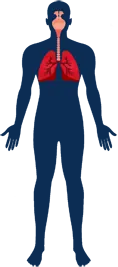- Home
- Browse by Disease
- Autoimmune pulmonary alveolar proteinosis
Autoimmune pulmonary alveolar proteinosis
- Other Names:
APAP; autoimmune PAP; idiopathic PAP; idiopathic pulmonary alveolar proteinosis; iPAP; Pulmonary Alveolar ProteinosisAPAP; autoimmune PAP; idiopathic PAP; idiopathic pulmonary alveolar proteinosis; iPAP; Pulmonary Alveolar Proteinosis
Read More
Read Less








